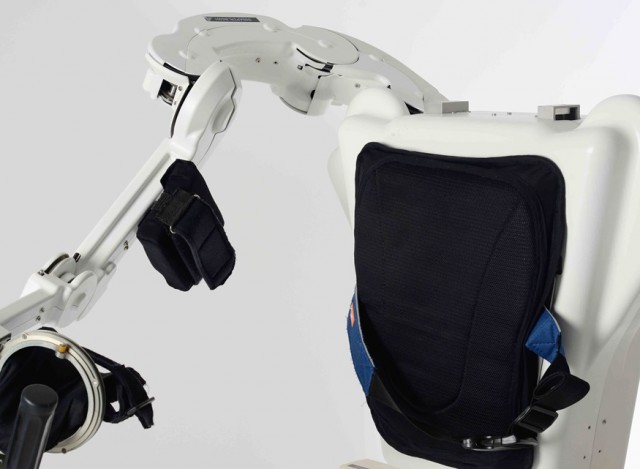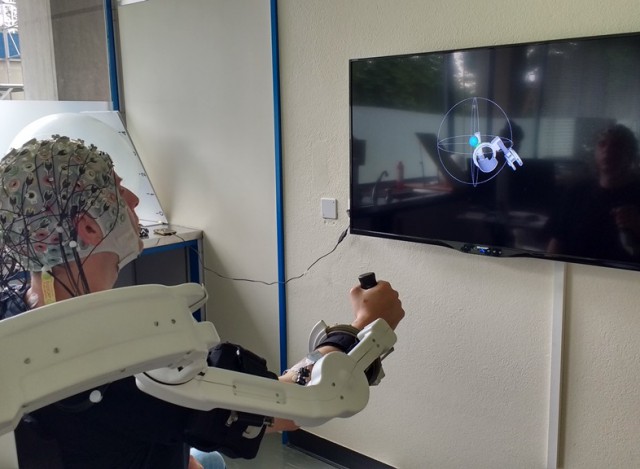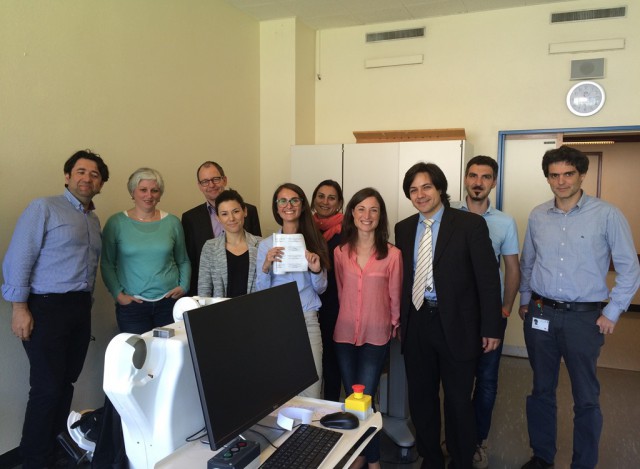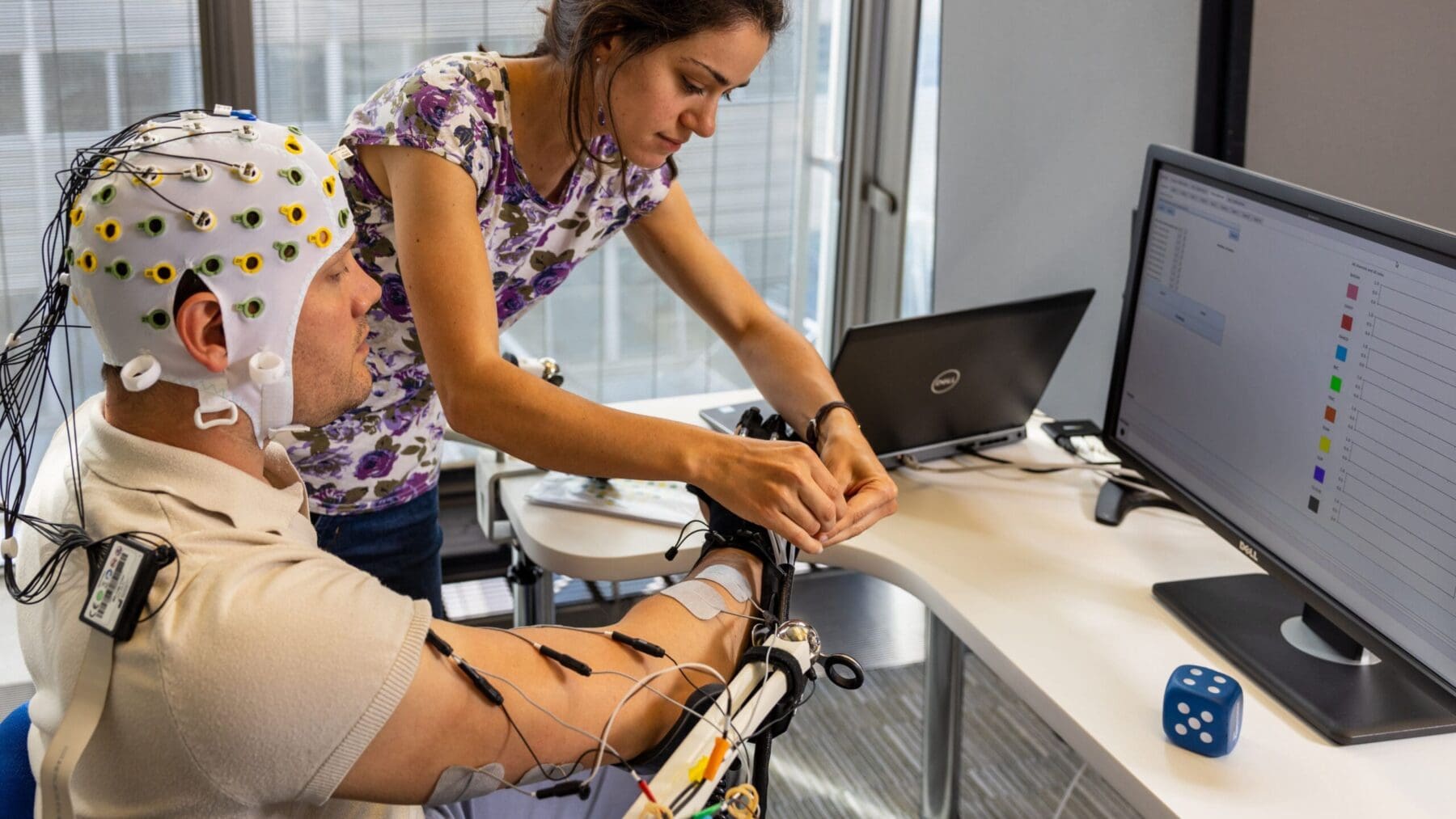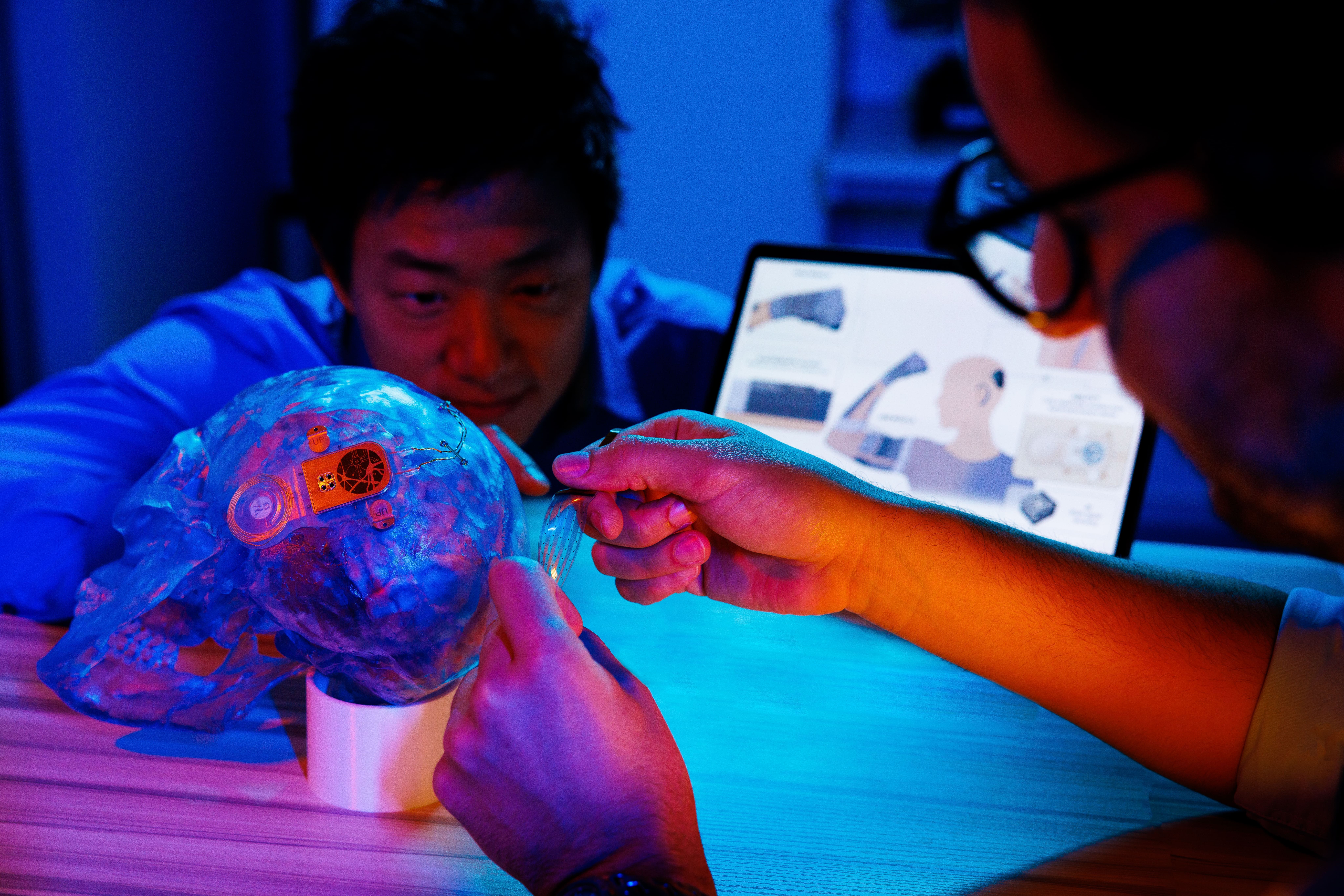25.07.2016
Personalized robots could improve stroke rehabilitation
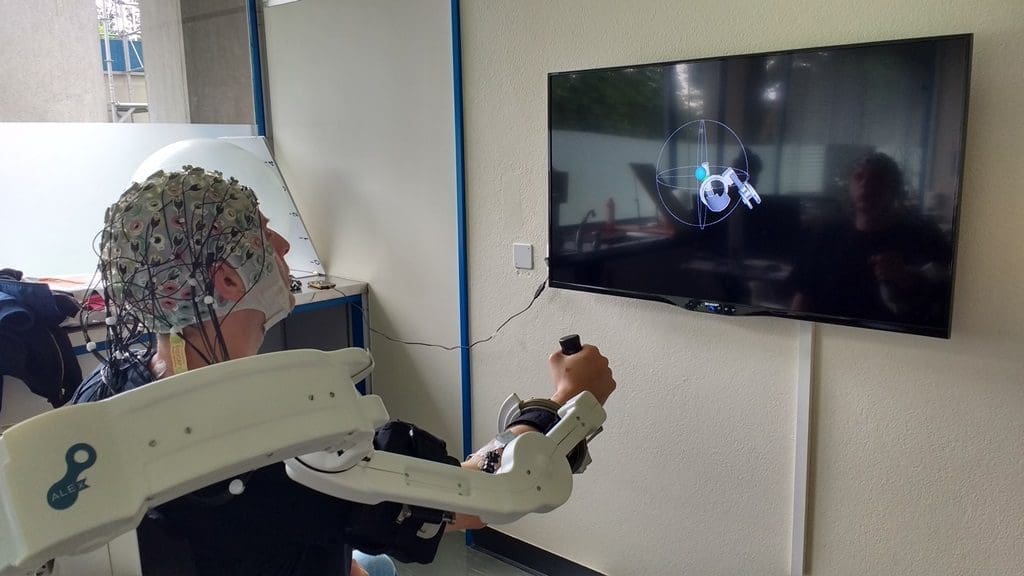
A clinical trial to test whether personalized robot-based rehabilitation can aid recovery of arm function after a stroke has been launched in Geneva.
The study (ClinicalTrials.gov: NCT02770300) aims to find out whether recovery after stroke can be improved by using an intelligent robotic exoskeleton which selects the optimal series of movements the paralyzed arm should perform during rehabilitation.
The clinical trial will evaluate the effectiveness of personalized robot-assisted rehabilitation on brain plasticity and muscle activity after a stroke.
Dr Martina Coscia, Staff Engineer at the Wyss Center said: “We want to find out whether this personalized exoskeleton can help the brain relearn how to move after a stroke. If successful, this method of rehabilitation could accelerate the path to recovery and enable patients to regain their independence over shorter timescales.”
The personalized robotic therapy incorporates the lightweight upper body robotic exoskeleton, known as ‘ALEx’ (Arm Light Exoskeleton), manufactured by industrial partner Wearable Robotics, with an intelligent algorithm developed at EPFL.
The researchers will monitor arm motion, muscle activity and brain activity in people with stroke-induced arm paralysis while they sit in the exoskeleton and perform a three dimensional point-to-point reaching task. The efficacy of the intelligent robotic protocol in improving rehabilitation will be compared with stroke patients who receive additional time with a human therapist and with patients who use the exoskeleton without the intelligent add-on. All participants in the trial also receive standard stroke rehabilitation treatment.
The intelligent robotic therapy selects the movements based on how well the person previously reached the targets. If a particular movement is easy for the subject, a more challenging one will be proposed in order to match the difficulty of the exercise to the ability of the person.
By contrast, the standard robotic exoskeleton, without the intelligent add-on, asks the person to perform a standard series of reaching tasks regardless of their capability.
The clinical trial, known as the NeuroPRoBES project, is a collaboration between the Geneva-based Wyss Center, Wearable Robotics (robot manufacturer and study sponsor), the group of the Bertarelli Foundation Chair in Translational NeuroEngineering at the École polytechnique fédérale de Lausanne (EPFL), the Swiss National Centre of Competence in research (NCCR) Robotics and two participating hospitals – HUG (Geneva) and Pisa University Hospital.
The film shows the visual display used by clinical trial participants during the reaching task. The virtual exoskeleton arm is shown in white.
